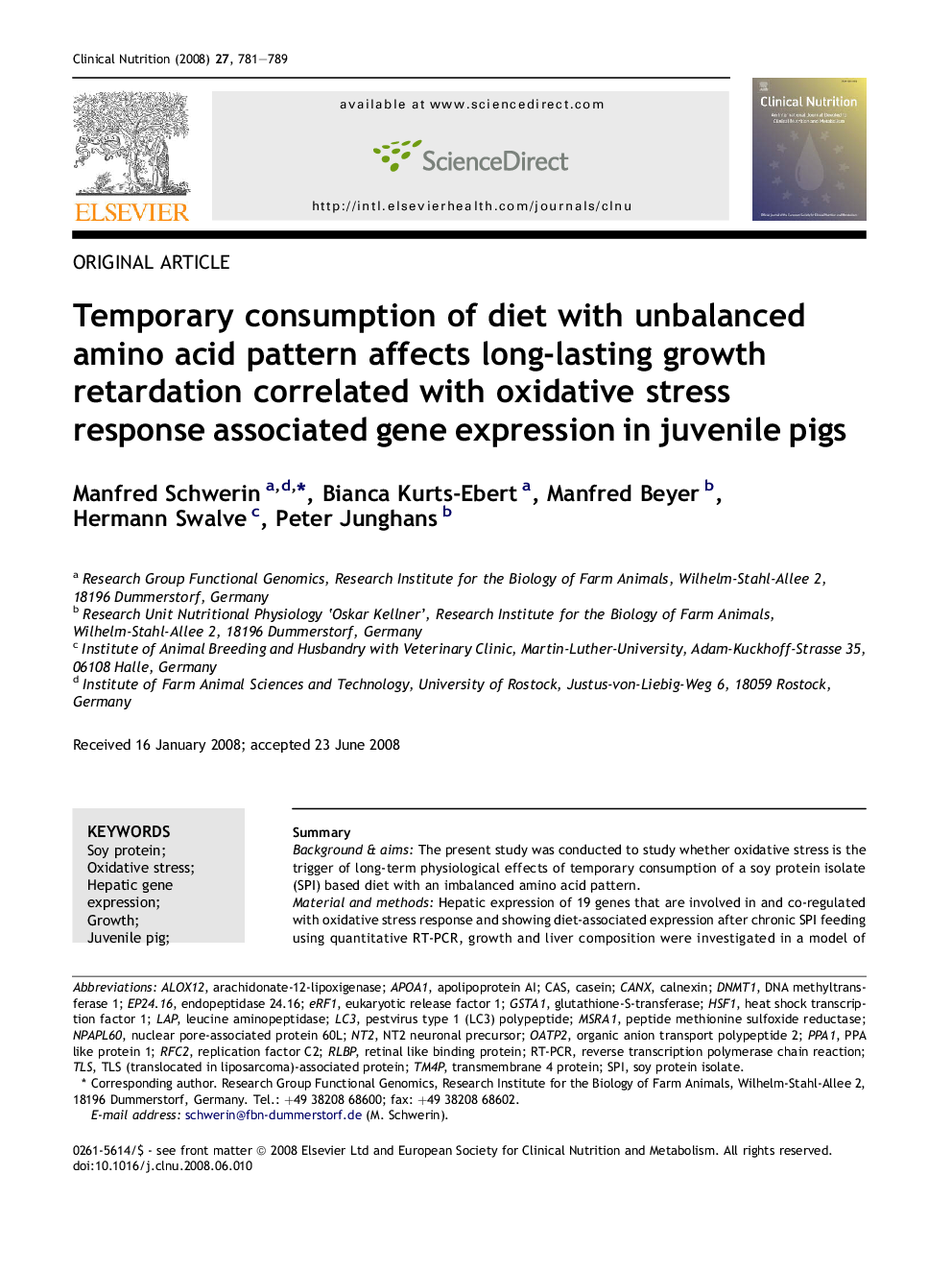| Article ID | Journal | Published Year | Pages | File Type |
|---|---|---|---|---|
| 2683337 | Clinical Nutrition | 2008 | 9 Pages |
SummaryBackground & aimsThe present study was conducted to study whether oxidative stress is the trigger of long-term physiological effects of temporary consumption of a soy protein isolate (SPI) based diet with an imbalanced amino acid pattern.Material and methodsHepatic expression of 19 genes that are involved in and co-regulated with oxidative stress response and showing diet-associated expression after chronic SPI feeding using quantitative RT-PCR, growth and liver composition were investigated in a model of protein-underfeeding juvenile pigs, which were fed a casein (CAS) based diet for four weeks subsequent to a four week consumption of an SPI diet in comparison with chronically CAS fed animals.ResultsTemporary feeding of SPI diet resulted in prolonged up-regulation of genes involved in oxidative/cellular stress response (glutathione-S-transferase, peptide methionine sulfoxide reductase, calnexin, organic anion transport polypeptide 2). Cluster analysis of gene expression data indicated persistent SPI-related co-regulation of the genes involved in stress response with genes involved in the regulation of protein biosynthesis and in neuronal signalling for at least four weeks after replacement of SPI by CAS. Gene expression data are negatively correlated with body weight and liver protein content.ConclusionSignificant association of oxidative stress responsiveness with growth retardation and liver composition underline the possible impact of diet-affected oxidative stress for long-lasting deleteriously metabolic consequences.
